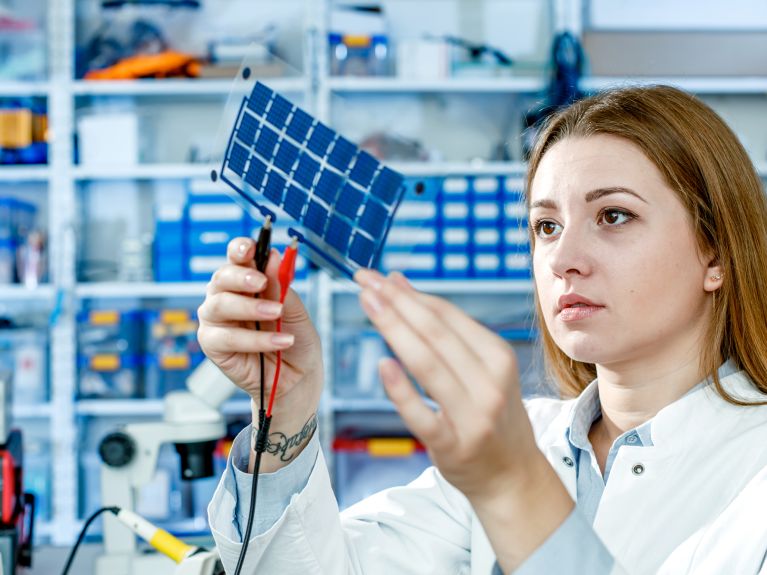Bright prospects
The new German-Israeli HI-SCORE research school is building on the enormous potential of solar energy.

Germany has never generated as much solar electricity in the first six months of a year as it did in 2018. The prospects are therefore bright for the new project of the Helmholtz-Zentrum Berlin für Materialien und Energie (HZB): HI-SCORE is a new international solar energy research school that the HZB has founded with German and Israeli partners. Its name stands for Hybrid Integrated Systems for Conversion of Solar Energy. The HZB is cooperating with the Weizmann Institute of Science in Rehovot, the Technion in Haifa, Bar-Ilan University, Ben-Gurion University and the Hebrew University of Jerusalem as well as Technische Universität Berlin, Freie Universität Berlin, Humboldt-Universität zu Berlin and the University of Potsdam. The collaboration will enable 30 PhD students to work internationally on the development of components for solar energy production.
Exchange for scientific progress
Above all, the research school has two goals, explains Daniel Abou-Ras, the scientific coordinator of the programme. “PhD students will come together while working on their doctoral dissertations. And at the same time this exchange will guarantee excellent research.” Two supervisors – one from Germany and one from Israel – will support each PhD student. The PhD students will spend six months in the respective other country and participate in their supervisors’ research. This will enable them to gain valuable international experience. Research will be carried out in the areas of materials development, interface design and device integration. The Helmholtz Association began funding HI-SCORE as part of the network of Helmholtz International Research Schools in February 2018. The participating institutions will make roughly seven million euros available for the joint project over a period of six years.
Close ties with Israeli partners
Researchers at the HZB have maintained close ties with Israel since the 1980s. Professor Otmar Wiestler, President of the Helmholtz Association, laid the concrete foundations for the new research school during a visit to Israel in spring 2016. Abou-Ras sees advantages in the collaboration beyond the simple exchange of specialist knowledge: “With the desert on our doorstep we are naturally very much better placed to test modules in the field.” In Germany, on the other hand, stability measurements in direct sunlight are not always possible. In exchange, Berlin can offer the BESSY photon source. Scientists from all over the world use this research facility to investigate questions in the fields of physics, biology and environmental technology. “We complement one another very well,” says Abou-Ras.
